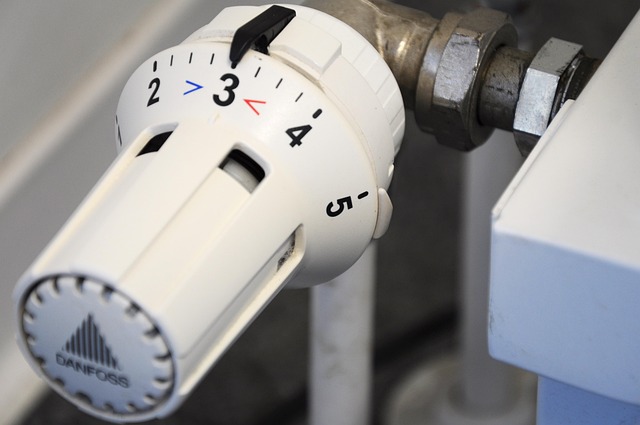Understanding Heating System Issues: Signs, Solutions, and Services
When your heating system stops working efficiently, it can disrupt your daily routine and leave you without hot water or heating. Understanding the warning signs of a faulty boiler, knowing how to address common issues, and selecting a trustworthy service provider are essential steps in maintaining a safe and comfortable home environment. This guide explores practical information to help you navigate heating system maintenance with confidence.

Boilers are essential appliances in many households, providing hot water and heating throughout the year. However, like any mechanical system, they can develop faults over time due to wear and tear, poor maintenance, or component failures. Recognizing when your boiler needs professional attention and understanding the process can save you time, money, and potential safety hazards. This article covers the key aspects of maintaining your heating system, from identifying problems to selecting qualified professionals.
Identifying Signs of a Faulty Boiler Needing Repair
Recognizing the early warning signs of a malfunctioning boiler can prevent more serious damage and costly interventions down the line. One of the most obvious indicators is inconsistent heating or hot water supply. If your radiators are not warming up properly or the water temperature fluctuates unexpectedly, this suggests an internal issue that requires investigation.
Unusual noises such as banging, whistling, or gurgling sounds often point to problems like air in the system, low water pressure, or limescale buildup on the heat exchanger. These sounds should not be ignored, as they can indicate components working under strain. Another red flag is visible leaks or drips around the boiler unit, which may result from broken seals, corroded pipes, or pressure valve issues.
A sudden increase in energy bills without a corresponding change in usage patterns can signal that your boiler is operating inefficiently. Additionally, if the pilot light frequently goes out or the flame appears yellow instead of blue, this could indicate a combustion problem or carbon monoxide risk, requiring immediate professional attention. Strange odors, particularly a metallic or burning smell, should also prompt you to switch off the boiler and contact a qualified technician.
Common Boiler Problems and Effective Repair Solutions
Boilers can experience a range of issues, each requiring specific approaches. Low boiler pressure is among the most frequent problems, often caused by water leaks or bleeding radiators. The solution typically involves identifying and fixing any leaks, then repressurizing the system to the manufacturer’s recommended level, usually between 1 and 1.5 bar.
Frozen condensate pipes are particularly common during colder months. When the pipe that carries condensation away from the boiler freezes, it can cause the system to shut down. Thawing the pipe carefully with warm water or a hot water bottle usually resolves this issue, though insulating the pipe can prevent recurrence.
Thermostat malfunctions can lead to heating inconsistencies. If the thermostat is not communicating properly with the boiler, rooms may not reach the desired temperature. Replacing batteries, checking connections, or upgrading to a more reliable thermostat model often solves this problem.
Pump failure or circulation issues prevent hot water from moving through the heating system effectively. This can result from worn-out components, blockages, or electrical faults. A qualified technician can assess whether the pump needs attention or replacement.
Limescale buildup in areas with hard water can reduce boiler efficiency and cause overheating. Power flushing the system or installing a water softener can address this issue and extend the lifespan of your boiler.
Steps to Choose a Reliable Boiler Repair Service Provider
Selecting the right professional for heating system maintenance is crucial for ensuring quality workmanship and safety. Start by verifying that any technician you consider is properly licensed and certified to work on gas appliances. In Singapore and many other regions, gas engineers must hold specific qualifications and be registered with relevant regulatory bodies.
Experience matters significantly when dealing with boiler systems. Look for service providers with a proven track record in working with your specific boiler make and model. Reading customer reviews and testimonials can provide valuable insights into the reliability and professionalism of different companies.
Transparency in pricing is another important consideration. Reputable service providers should offer clear quotes before beginning work, outlining labor costs, parts, and any additional fees. Be wary of unusually low estimates, as these may indicate substandard parts or hidden charges.
Response time and availability are practical factors, especially during emergencies. Choose providers who offer prompt service and have flexible scheduling options. Many established companies provide emergency callout services for urgent situations.
Warranties and guarantees on both parts and labor demonstrate a company’s confidence in their work. A reliable service provider should stand behind their workmanship and offer reasonable warranty periods. Additionally, check whether they provide ongoing maintenance plans, which can help prevent future breakdowns and maintain your boiler’s efficiency.
Asking for recommendations from friends, family, or neighbors who have had similar work done can lead you to trustworthy professionals. Local services often have established reputations within the community and may offer more personalized customer care.
Understanding Service Costs and Options
The cost of heating system maintenance varies depending on the nature of the problem, the parts required, and the service provider you choose. Minor interventions such as replacing a thermostat or fixing low pressure typically range from SGD 100 to SGD 300. More complex issues like pump replacement or heat exchanger work can cost between SGD 300 and SGD 800 or more.
Emergency callout fees often add SGD 80 to SGD 150 to the total bill, particularly for services outside regular business hours. Annual maintenance contracts, which can help prevent costly problems, generally range from SGD 150 to SGD 400 depending on the level of service included.
| Service Type | Typical Cost Range (SGD) | Description |
|---|---|---|
| Thermostat Replacement | 100 - 250 | Replacing faulty temperature control unit |
| Pressure Valve Work | 150 - 300 | Fixing or replacing pressure relief components |
| Pump Replacement | 300 - 600 | Installing new circulation pump |
| Heat Exchanger Work | 400 - 800 | Addressing limescale or component damage |
| Annual Maintenance | 150 - 400 | Preventive service and inspection |
| Emergency Callout | 80 - 150 | Additional fee for urgent service |
Prices, rates, or cost estimates mentioned in this article are based on the latest available information but may change over time. Independent research is advised before making financial decisions.
Preventive Maintenance to Reduce Service Needs
Regular maintenance is the most effective way to minimize heating system issues and extend the lifespan of your equipment. Annual servicing by a qualified technician can identify potential problems before they escalate into major concerns. During a service visit, the engineer will inspect components, clean critical parts, check for leaks, and ensure the system operates at optimal efficiency.
Simple homeowner tasks can also contribute to boiler health. Bleeding radiators annually removes trapped air that can reduce heating effectiveness. Monitoring boiler pressure and topping it up when necessary prevents strain on the system. Keeping the area around the boiler clear and well-ventilated ensures proper operation and makes inspections easier.
Installing a magnetic filter can capture debris and sludge before they circulate through the system, protecting components from damage. In areas with hard water, considering a water softener or scale inhibitor can prevent limescale accumulation that reduces efficiency and causes breakdowns.
Conclusion
Maintaining a functional boiler requires awareness of warning signs, understanding common problems, and choosing qualified professionals for assistance. By recognizing symptoms early, you can address issues before they become serious safety hazards or result in complete system failure. Selecting a reliable service provider based on qualifications, experience, and transparent pricing ensures quality workmanship and peace of mind. Regular preventive maintenance remains the best strategy for avoiding unexpected breakdowns and maximizing your boiler’s efficiency and lifespan. With proper care and timely professional intervention, your heating system can continue providing reliable service for many years.




